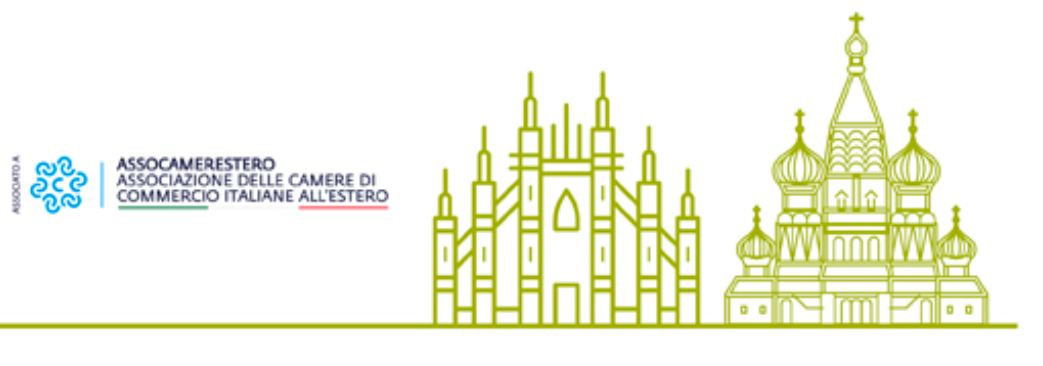The Italo-Russian Chamber of Commerce is considering the creation of a mechanism that would allow Russian companies to pay for non-sanctioned Italian products in rubles, as announced by the President of the organization, Ferdinando Pelazzo, to the Russian media.
“We want to create a system that allows the Russian buyer to pay us in rubles, and then we can transfer this money to Italy from our account in a third country,” stated Pelazzo.
The Chamber of Commerce official explained that negotiations with banks are still necessary to convince them that this is not money laundering. Additionally, a third country needs to be found, and relations with that country’s central bank need to be established.
“There are issues that will take a couple of months. It’s negotiations with the banks… I think the whole process will take several months.”
Pelazzo also emphasized in an interview with Ria Novosti that the goal is not to allow illegal transactions but to facilitate trade in permitted categories for importing goods from Italy. He highlighted that there are difficulties in trading goods between Italy and Russia, even for products not subject to sanctions.
“51% of Italian exports to Russia are sanctioned. But there is also 49% of products that are not banned: Wine, shoes, fashion items,” he pointed out.
Overall, “sanctions continue to expand and continue to hit exports” from Italy, which decreased by 15.4% between January and May 2023. Pelazzo recalled that Moscow “used to buy a lot from medium and small manufacturers, not well known in the international market,” and that Italian supplies of goods to Russia accounted for 4% of the entire national export, but now have dropped to 0.9%.
“In Italy, they say there is nothing to worry about, just redirect towards other countries. But it’s not like that,” Pelazzo concluded, as reported by Sputnik.
A chance for Italian companies to diversify their sources of income
With the implementation of a ruble payment mechanism for products exported to Russia, Italian companies could diversify their sources of income. This could be particularly valuable in the current uncertain economic environment, as traditional markets within the European Union slow down or even enter a recession, as demonstrated by the recent data on Germany’s economy, heavily affected by sanctions against Russia and the foolish renunciation of low-cost energy supplied by Moscow.
Italian companies willing to accept payments in rubles could gain a competitive edge in the Russian market. By reducing the need for Russian customers to convert currency for purchasing Italian products, Italian companies can make their products more accessible and appealing, thereby increasing demand and competitiveness in the Russian market.
Moreover, accepting payments in rubles can improve commercial relations between Italian companies and their Russian partners. Demonstrating greater flexibility and adaptability in payment methods can strengthen mutual trust and foster greater collaboration in the long term. This can lead to more solid and enduring partnerships, generating mutual benefits.
Despite the relentless Russophobe propaganda prevailing in mainstream media, a ruble payment mechanism for products not subject to sanctions from Russia could bring several advantages to Italian companies. These include diversification of income, reduction of currency exchange costs, increased competitiveness, new business opportunities, and enhanced commercial relationships.
In Italy, there is currently a government that represents the political continuation of the ultra-Atlantic technocratic executive led by quisling Mario Draghi. Nonetheless, we must keep in mind that the world has entered a new phase characterized by the impetuous emergence of a multipolar order. Therefore, in the context of the emerging multipolar world, a mechanism that allows Russian companies to pay for non-sanctioned Italian products in rubles could be seen as a significant step towards greater economic diversification and financial independence for the involved countries. This system could have several implications in a world where geopolitical dynamics are changing, and new poles of power are emerging.
Reducing dependence on US dollar
The ruble payment mechanism for Italian products could help reduce reliance on traditional currencies such as the US dollar or the euro. In this multipolar world, where some economies seek to escape the dominance of Western currencies, this system could foster a more diverse and resilient financial system.
The mechanism could also stimulate greater economic cooperation between Russia, Italy, and other countries adopting multipolar economic policies. It could create a common front among emerging nations, seeking to balance the power of major world economies and promote greater decision-making autonomy.
By adopting a ruble payment system, Italian companies may become less vulnerable to unilateral measures or financial sanctions imposed by other global powers. Being able to trade in rubles could mitigate the negative impacts of unilateral economic restrictions, ensuring greater business continuity.
Ultimately, the creation of such a payment mechanism could represent a step towards promoting alternative and decentralized economic models. In the context of a multipolar world, new economic paradigms may emerge, and this system could be seen as an example of how countries can seek to rebalance the international economic system.

















Leave a Reply